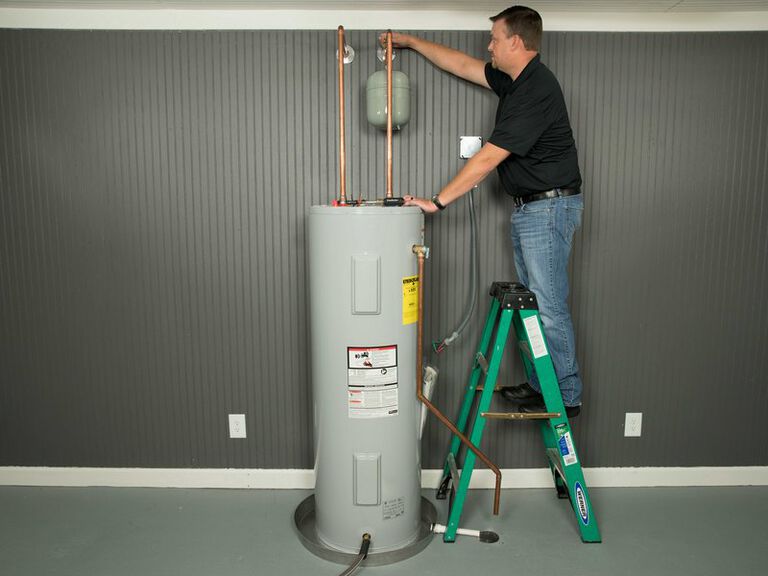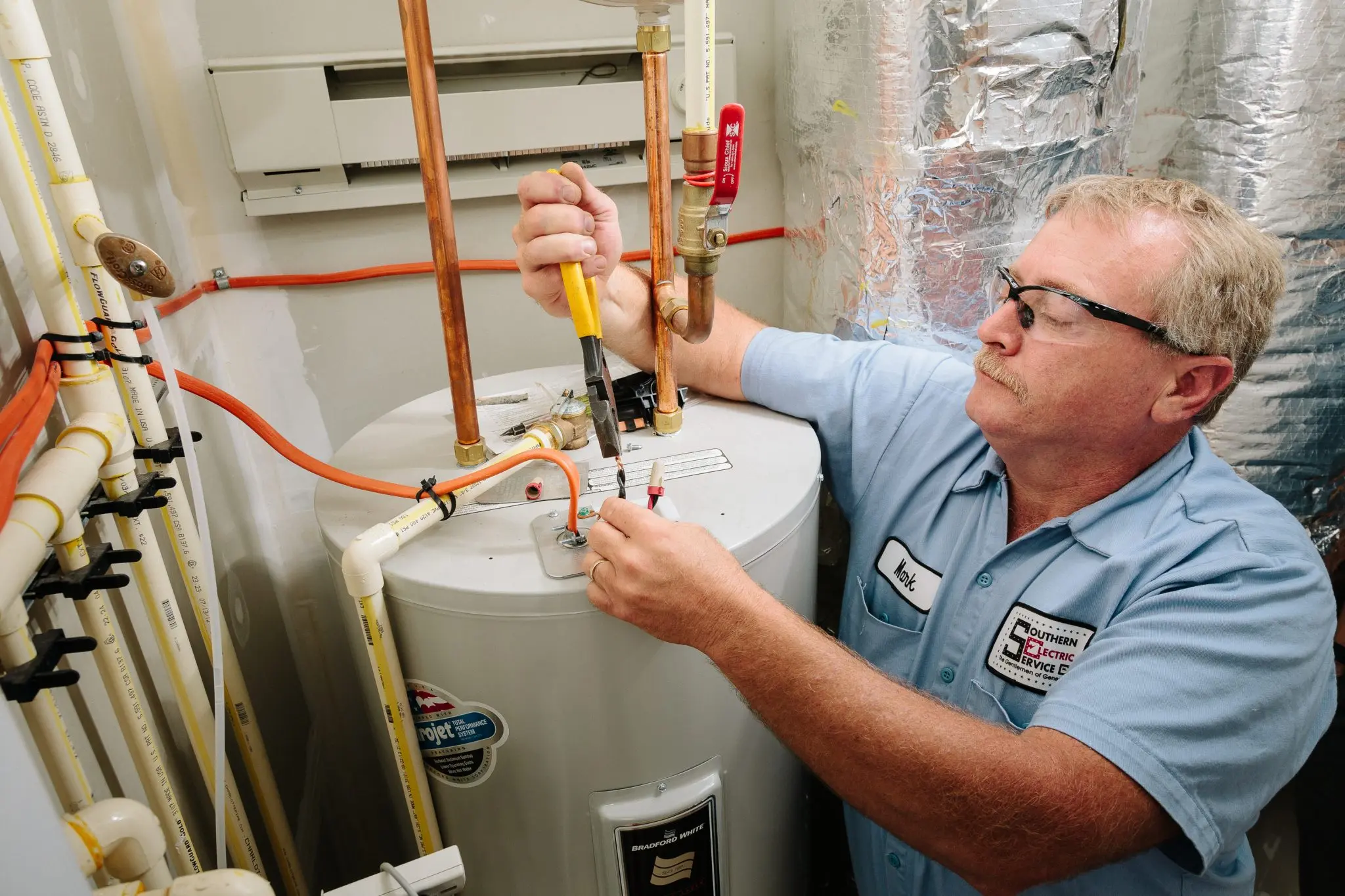Affordable Drain Cleaning Services to Remove Blockages and Unpleasant Smells
Affordable Drain Cleaning Services to Remove Blockages and Unpleasant Smells
Blog Article
Full Overview to Water Heating SystemInstallment and Replacement
Recognizing the intricacies of water heating system installation and substitute is crucial for property owners looking for to guarantee performance and integrity in their hot water supply. From selecting the proper type and size to executing a smooth installation process, numerous variables have to be taken into consideration to stay clear of usual mistakes.
Kinds of Hot Water Heater
When thinking about water heating system setup and replacement, it is vital to comprehend the different types of water heaters available out there. One of the most usual kinds consist of tank water heating units, tankless hot water heater, heatpump hot water heater, and solar hot water heater.
Storage tank water heating systems are typical systems that save a certain volume of warm water, making them readily available when needed. They are typically more economical ahead of time yet may incur greater energy prices over time as a result of warm loss. In contrast, tankless water heating units give warm water as needed, removing the requirement for storage. They are energy reliable and can conserve area, yet their first costs are commonly higher.
Heatpump water heaters use electricity to transfer heat from the air or ground to warmth water, using significant power cost savings but requiring even more area and specific setup problems. Solar water heating systems harness solar power to warmth water, providing an eco-friendly choice with possible long-term cost financial savings, although they frequently need a backup system for gloomy days.
Comprehending these alternatives ensures notified choices concerning installment and substitute, dealing with details needs and preferences.
Selecting the Right Size
Choosing the appropriate size for a water heating system is important to guarantee optimum performance and performance. An unit that is too small will struggle to fulfill family demands, bring about irregular warm water availability and raised energy usage. Conversely, a large hot water heater can cause unnecessary power waste and greater energy expenses.
To identify the right size, consider the family's peak hot water usage. This can be determined based upon the number of residents and their typical warm water needs. A family of four might call for a water heater with a capability of 50 to 80 gallons, depending on the use patterns, such as simultaneous showers and laundry.
In addition, analyze the healing price, which measures how quickly a heater can renew hot water after it has been made use of. For tankless designs, concentrate on the flow rate, determined in gallons per minute (GPM), to guarantee it satisfies the household's simultaneous demand.

Installment Process Introduction

Next, the old system should be disconnected and removed, taking treatment to comply with neighborhood codes and guidelines regarding disposal. As soon as the old system is out, the new hot water heater can be placed in location. This action entails attaching the supply of water lines, guaranteeing that all installations are safe and secure and leak-free.
After developing water connections, it's crucial to link the power supply, whether electrical or gas, complying with the manufacturer's guidelines diligently. When all links are made, the system needs to be full of water, and the power can be turned back on. It's essential to check for leaks and make sure the water heating unit is operating appropriately before completing the setup procedure.
Usual Installment Mistakes

One more constant mistake is overlooking to adhere to regional codes and policies. Stopping working to adhere to these requirements can not only lead to security risks however may additionally result in pricey penalties or the need for costly reinstallation.
Wrong plumbing connections are also a widespread error. Stopping working to secure connections or utilizing the wrong kind of fittings can lead to leaks and water damages. Furthermore, neglecting the significance of an appropriate drainpipe pan can result in substantial water damage if leaks do happen. Finally, insufficient insulation of pipelines can bring about heat loss, decreasing efficiency. By avoiding these common setup blunders, homeowners can guarantee their hot water heater operates securely and effectively, optimizing efficiency and longevity.
Maintenance Tips for Durability
Correct maintenance of a hot water heater is crucial for its longevity and optimum performance. Routine examinations and servicing can stop pricey repairs and extend the device's life-span. Begin by checking the temperature setting; it must generally be set between 120 ° F and 140 ° F for optimum power effectiveness and safety and security.
Every six months, purge the tank to get rid of sediment buildup, which can harm home heating efficiency and cause corrosion. To do this, transform off the heating system, connect a hose pipe to the drain shutoff, and let the water run till it is clear.
When they are corroded,Anode poles need to be evaluated every year and changed. These rods assist avoid container deterioration by drawing in harsh aspects in the water.
Additionally, examine the stress safety valve routinely to ensure it is working properly. This valve is essential for protecting against excessive stress accumulation within the tank.
Lastly, consider arranging an expert maintenance check every few years for detailed evaluations and maintenance. By adhering to these upkeep ideas, homeowners can significantly improve the efficiency, pop over to these guys security, and lifespan of their hot water heater, ensuring trustworthy warm water for years to find.
Verdict
Finally, like it appropriate setup and maintenance of water heating systems are crucial for making certain effectiveness and long life (water heater installation). Selecting the appropriate type and size, sticking to setup guidelines, and preventing common errors dramatically add to optimal efficiency. Normal upkeep checks and professional servicing help receive functionality and avoid expensive repair services. By recognizing these essential facets, house owners can achieve a reliable hot water supply while lessening potential concerns connected to hot water heater procedure.
Recognizing the ins and outs of water heating system installment and substitute is critical for homeowners looking for to ensure efficiency and integrity in their hot water supply.Container water heating units are traditional systems that store a details quantity of hot water, making them easily available when required. In comparison, tankless water heating units offer warm water on demand, getting rid of the need for storage. Picking a water heating unit that is either too little or also large can lead to ineffectiveness, resulting in inadequate warm water supply or extreme energy consumption.
By recognizing these necessary facets, homeowners can achieve a trustworthy hot water supply while decreasing potential concerns related to water heating unit procedure. gas leak repair.
Report this page